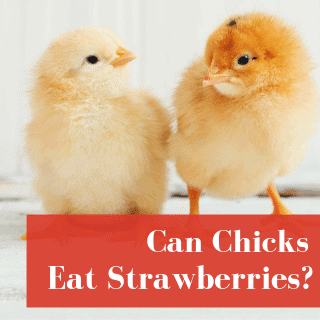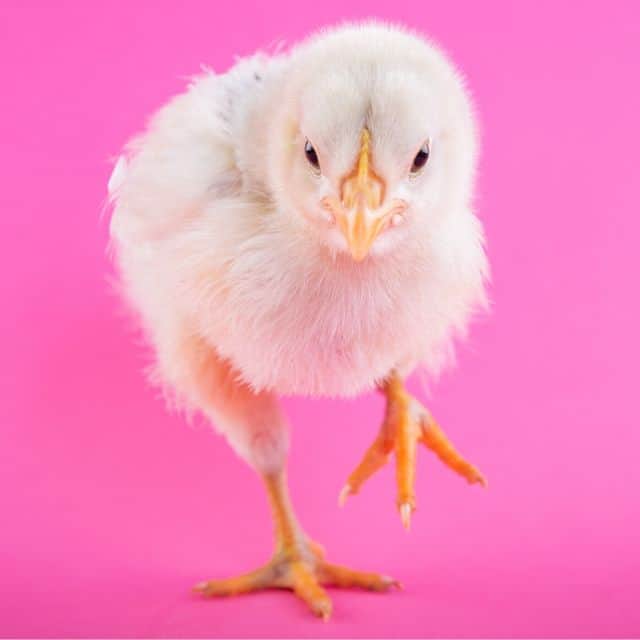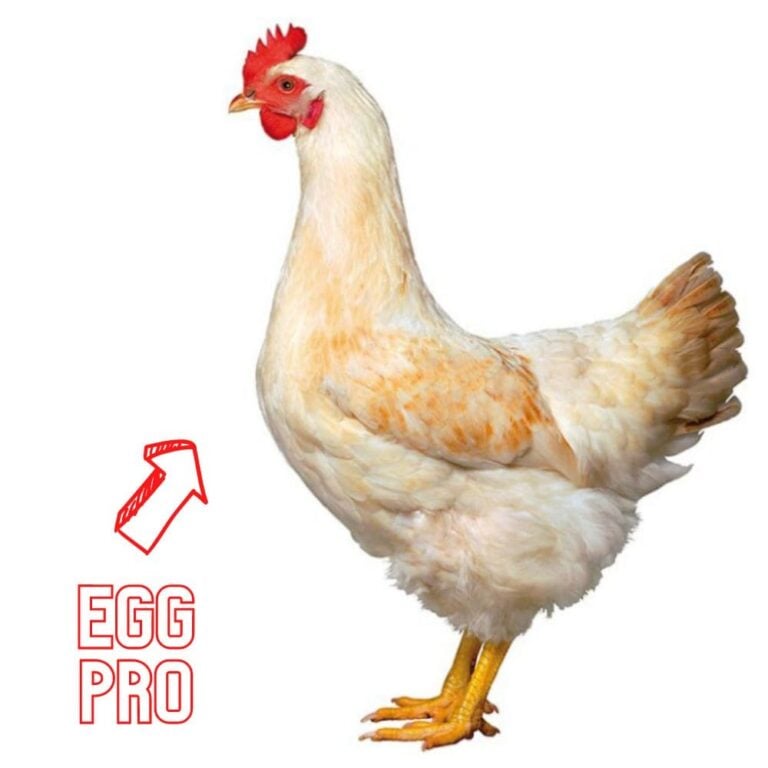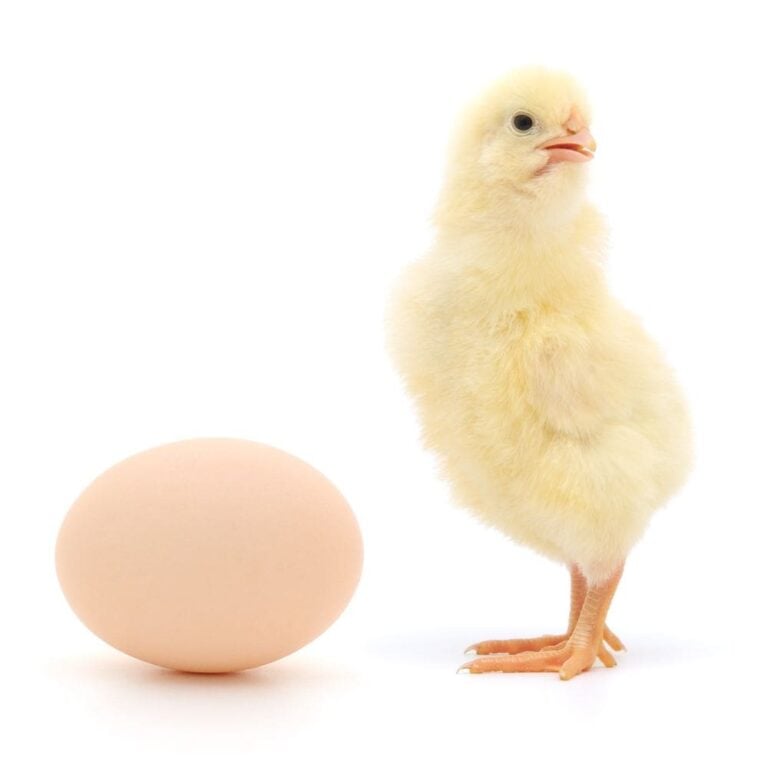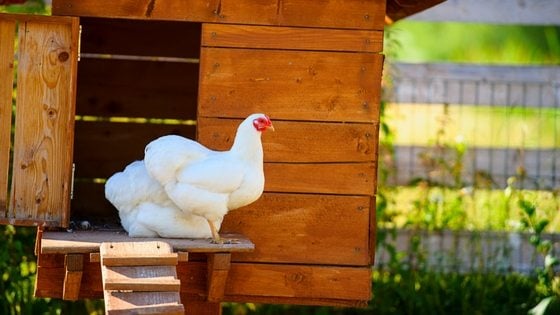Got new chicks….only to have your hens pick on them? Why do hens pick on chicks? There’s an easy explanation why – and you don’t have to worry.
Did you know that “pecking order” came from chickens? True story. Chickens love to peck.
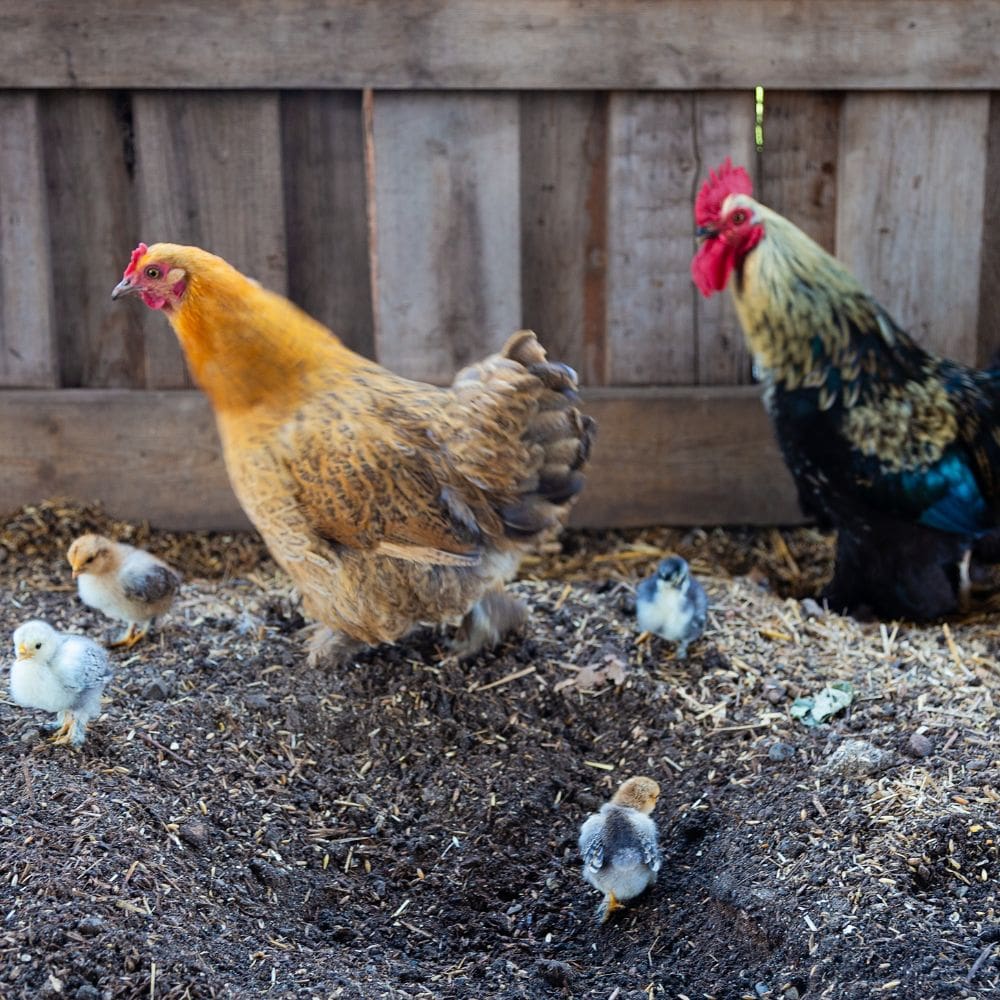
They usually like to peck at the ground to see what kind of treats they can dig up, but occasionally while owning chickens, you might notice your older chickens pecking at the baby chicks you’ve just introduced to the flock.
I’m asked a question: “Why do older chickens bully (‘peck on,’ if you will) younger chickens, particularly baby chicks?”
Main Takeaways:
- Hens bully chicks because they’re sorting out the pecking order
- If chicks are not being hurt, then let them stay in the coop. The hens will eventually stop.
- If the chicks ARE being hurt, then isolate them immediately, and put them back with the hens when the chicks are older (12 – 16 weeks).
- If the chicks can’t get to food or water, remove them ASAP.
- You can also introduce slowly, and give them all mealworms or other treats when they’re playing together. This will help everyone associate being together with the treats, and distract the hens from potentially bullying the chicks.
It’s All About The Pecking Order
The main reason older chickens sometimes bully baby chicks is simply because of a pecking order process. Suddenly, there are new chickens in the coop, and the older chickens want to establish themselves at the top of that pecking order. The same thing takes place when you introduce a new hen to an existing flock. You can learn how to safely introduce chickens here.
The pecking order is literally setting up the heirarchy in a flock and it’s their natural instincts at work. Sometimes, establishing this order results in clashes. Now, in most cases, this isn’t a problem.
Older chicks, especially hens, are not going to actually hurt the babies; they’re just trying to figure out who this newcomer is, what they’re about, and to establish their dominance over them.
It becomes an issue if you start to see the baby chicks get consistently picked on to the point of where there are open sores on them and they’re bleeding.
So it’s usually establishing who is at the top and who is at the bottom of the food chain and what their social standing is.
It’s the same thing as if you put humans in any situation: we are going to want to sort out who is the leader and who’s not the leader and where everybody stands. That’s essentially what’s going on when the older hens bully the younger chicks.
Stress-Related Bullying
Sometimes in extreme stress, the older chickens pick on the younger chicks simply because they’re stressed out. Issues of stress come from things like if the coop is too small, if there’s not enough food, if there are too many roosters; that kind of thing can contribute to too much stress.
The older chickens will then bully the younger chicks simply because they don’t have an outlet. They have that built-up aggression and the younger chicks are simply that outlet.
In most cases, specifically with pet chickens, that’s not even really an issue.
Roosters
The thing I’ve learned to watch out for, though, is roosters around your chicks. The roosters, especially if you have more than one, will try to compete over the chicks. That cango south really quickly. If you see your rooster going after your baby chicks, I would definitely separate the two right away.
Overcrowding
Overcrowding chickens in a coop can lead to behavioral issues, the most common of which is bullying. When chickens are cramped in a confined space it can lead to stress and aggression.
The limited space exacerbates these problems, as the weaker birds have nowhere to escape, further escalating the unrest within the coop. This situation not only affects the well-being of the chickens but also can have negative impacts on their health and egg production.
Your chicken coop needs to have enough square feet for each bird to have space to spread its wings (so to speak). I recommend you give them just a bit more room, per bird, than any minimum requirements you may read about.
You also need to be sure there are enough waterers and feeders to accommodate all of the flock. If you don’t, then there is sure to be extra conflict. Besides that, the chicks would have a really hard time getting food and water.
Boredom
Chickens get bored just like us, and when they do, they can start picking on each other, which isn’t cool. It’s kind of like they need something fun to do, or they get into trouble. So, it’s a good idea to throw in some boredom busters, like veggies (which also provide nutrients)they can peck at, places to perch, and spots for dust baths. This keeps them busy and happy and stops them from behavior like bullying each other.
A bonus benefit from dust baths is that they help reduce the chances of mites and other external parasites as well.
You can also put nesting herbs in their nest box which they can peck at as well. It’s a health benefit to them as well as a boredom buster.
Summary
To sum up the reason that the older hens will pick on younger chicks isn’t necessarily that they’re bullying them, it’s more often that they are trying to figure out where the baby chicks are in the social order and to establish their dominance.
If you have enough food and water for everybody, there’s plenty of space, and you see the older hens going after the younger chicks, it’s almost undoubtedly an issue of them just trying to figure out the social hierarchy.
Maat van Uitert is a backyard chicken and sustainable living expert. She is also the author of Chickens: Naturally Raising A Sustainable Flock, which was a best seller in it’s Amazon category. Maat has been featured on NBC, CBS, AOL Finance, Community Chickens, the Huffington Post, Chickens magazine, Backyard Poultry, and Countryside Magazine. She lives on her farm in Southeast Missouri with her husband, two children, and about a million chickens and ducks. You can follow Maat on Facebook here and Instagram here.

